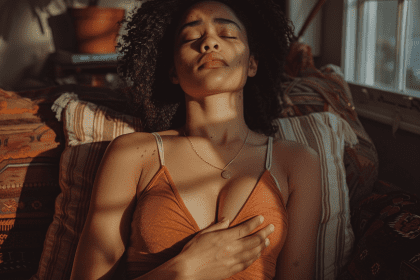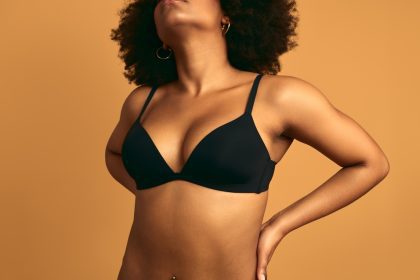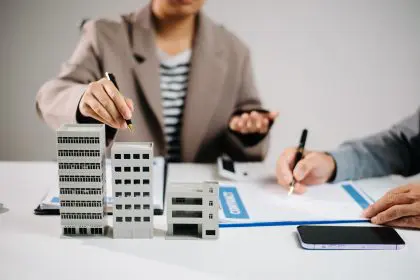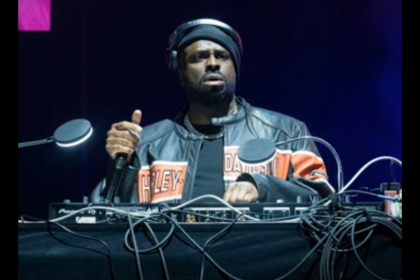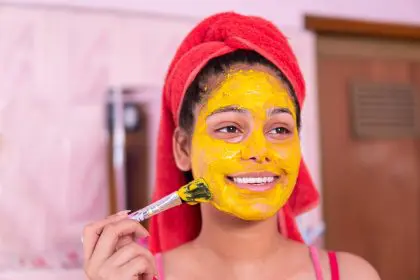Ricki Fairley is a Triple Negative Breast Cancer Survivor/Thriver and the CEO of TOUCH, The Black Breast Cancer Alliance. As an award-winning marketing veteran turned breast cancer advocate, Ricki has dedicated her life to addressing Black Breast Cancer as a unique disease state and reducing the mortality rate for Black women. With numerous initiatives under her belt, including the “When We Tri(al)” Movement and the “For The Love of My Gurls” Campaign, Ricki is at the forefront of driving awareness, action, and participation in clinical trials for Black women. In this enlightening interview, Ricki shares her personal journey and sheds light on the critical issues surrounding Black breast cancer.
[Editor’s note: This is a truncated transcribe of a longer video interview. Please see the video for the extended version. Some errors may occur.]
Can you share your personal experience with breast cancer?
Thank you so much for having me. You know I love you, my friend. We go way back. I got diagnosed, and it’s scary. You don’t know what you’re doing when you get diagnosed. My doctor actually ended up giving me two years to live, and two days ago, I celebrated 13 years. Can you believe that? Thirteen years—it’s amazing. But I had triple-negative breast cancer, which is the worst one. It has the highest mortality rate. Black women get it at three times the rate of white women, and we don’t know why.
What are some alarming statistics about breast cancer in Black women?
Forty percent of the patients are under the age of 40, and we don’t know why. It’s a nasty disease, but we’re getting it, and we’re dying. Black women die of breast cancer at any stage, any subtype, any age. In any case, we have a higher mortality rate. We have a 41% higher mortality rate than white women. We also have a 39% higher recurrence rate, so we’re getting it back readily, so often. The worst statistic for me is that Black women under 35 get breast cancer at twice the rate of white women and die at three times the rate of white women, often before they would have that first mammogram at age 40. Forty is too late for us, and we’re getting dismissed by doctors.
Why is there such a disparity in breast cancer outcomes for Black women?
Frankly, we just don’t know enough about it, and we don’t talk about it. We don’t talk about it in our families. We don’t talk about our histories until Uncle Pookie gets his leg amputated, or grandma is in the hospital. How did that happen? So we have to make this a conversation in our households for our women. But really, most importantly, Munson, we now have this growing body of research, of which I’m now a researcher—I don’t know how that happened—but it’s validating that a Black breast cancer cell looks different than a white breast cancer cell. And guess what? The drugs were made for the white cells. Hello!
I went back and looked in history, and there were no Black women in the clinical trials for all of the drugs that we take. And even now, there’s only a 3% participation in clinical trials for Black women.
What are the main reasons for low participation of Black women in clinical trials?
You know why Black women don’t participate? I did a study three years ago to understand—I’m a marketing person—what’s in the heads of these women? Two factors came out, and they’re both equally important. First, doctors do not invite Black women to trials. It’s implicit bias, racism, whatever you want to call it. They think, “Oh, she’s not going to show up,” or “She’s a single mom.” Whatever the issues are, doctors are not inviting us. Even when the patient brings up the topic of a clinical trial to their doctor and says, “Help me, tell me, understand this trial,” they still walk away ill-equipped with the information they need to make a decision or to defend it to their mothers or husbands. They aren’t spending enough time with them to explain what it is and what the science is about.
The other equally important reason is the fear of getting a placebo and dying. There’s this fear of the unknown, and people want to blame it on Henrietta Lacks and the syphilis study. It’s not that. I mean, those things are out there, kind of looming in the atmosphere, but it’s really that I don’t understand that I’m going to get the standard of care and what that means. And that means you’re going to get a drug that’s already on the market, that’s already available, that’s already been tested, and you’re going to get something better or different or something on top of the standard-of-care drug. So you’re going to get a drug. There is no placebo in cancer research.
And you’re going to get way better standard care. More people are going to be prodding you, poking you, scanning you, and checking on you to make sure the drug is working. And if it’s not, they’ll change it out. Just understanding that makes a difference. I learned pretty quickly that I can convince a Black woman to do a trial by saying things like, “You know the Advil you took last week? It was in a clinical trial.” You know that heart medicine I gave my dog Harper? It was in a clinical trial. It happens all around us, and so we learned that me having a voice of trust—being blessed to be a survivor—and explaining it in words people can spell, they say, “Hello! Sign me up! I don’t want to die.”
How are you addressing these issues?
So we launched our One Week Trial movement. Gosh, it’ll be three years in February, where we just kind of made a bunch of videos and a bunch of social media, and had women tell their stories about being on a trial and how it saved their lives. We’ve now signed up 19,453 Black women for clinical trial portals.
How close were you to participating in a clinical trial?
Oh, I was so close. I had a double mastectomy. I was diagnosed at stage 3A. I did six rounds of standard-of-care chemo. I did six weeks of radiation. My doctor said, “Okay, Ricki, you have no evidence of disease. Come back and get a scan in two months.” I went back almost exactly a year to the day of my diagnosis. They found five spots on my chest wall, and my doctor said, “Okay, you’re now metastatic, Ricki. We don’t have any more drugs for triple-negative breast cancer. You need to get your affairs in order. You’ve got about two years.”
And I said, “Well, I can’t really die right now. I have some stuff to do. I have to put my kids through Dartmouth. I have to pay tuition. So, me, you, God, and some drugs or something—we’ve got to work this out.” I went to Dr. Google, and I ended up finding the Triple Negative Breast Cancer Foundation after a lot of research. They found me a doctor who was probably one of about five doctors at the time researching triple-negative. She put me on experimental drugs, and that’s what saved my life.
So I did a lot more chemo and these experimental drugs, which are now standard-of-care drugs that people can take now, readily. And I didn’t die. So here I am. This is my God job. This is my God job, and I know that I have to help Black women, and I have to advance the science. We have more advocacy groups for breast cancer than any other cancer or disease because it’s women. But everybody can go home at night, pat themselves on the back, and say, “I helped someone with chemo today. I gave somebody a hug. I took them to the doctor,” whatever. But we’re not going to get anywhere until we get better drugs. That is my mission, and I yell at somebody every day, Munson. I have, and I’ve been so blessed to have good pharma partners.
They listen to me yell at them and say, “What are you doing for Black women? Where are your Black women in the trials?” They help me recruit Black women to the trials, talk about it differently, develop marketing materials for the trials, and make videos to explain what they’re doing with words people can spell.
Our platform is working. We’ve signed up 19,000 women. It’s not enough. We have to do a lot more, but it’s really important to get women to understand that this is the right thing to do. And if you’re a Black woman under 40 and you have triple-negative breast cancer, a trial is your best science. It’s your best option. It’s the best way to save your life.
What advice do you have for young Black women regarding breast health?
We also have a campaign called “For the Love of My Gurls,” spelled G-U-R-L-S, at loveofmygirls.org. We talk to young women, ages 18 to 35, just about breast health—knowing your risk, knowing your history, knowing what’s going on with both grandmothers on both sides of the family. We help you talk to them and give you tools to talk to these women who don’t want to talk about it.
We encourage making breast health an act of self-care. When you get your nails done, check your breasts. When you’re out to brunch with your girls, check your breasts. Make it part of your routine so you’re thinking about it and talking about it. It’s not a foreign object to you. You need to know your body because young women are getting dismissed. They go to the doctor, “I have a lump.” “Oh, girl, you’re young. You’re fine. You’re too young. You can’t have a mammogram. Come back in six months, we’ll hook you up.” No, they don’t make it to six months. I just had a little girl die—32 years old, three babies. A 23-year-old died a month ago. My little Ari—she had it at 19 and again at 21. It’s attacking our young babies, and we have to stop it. We have to stop it. But we’re only going to get it right with drugs, with better drugs, and with understanding the science—understanding why young women are getting it more readily, and why it’s affecting Black women.
What’s next in your fight against Black breast cancer?
I’m working on a really cool project now with Dr. Melissa Davis at Morehouse School of Medicine. She’s the first Black woman to get awarded a Cancer Grand Challenge. It’s a $25 million grant funded by NIH and Cancer Research UK. We are exploring why Black women are dying, and why Black men are dying of prostate, breast and pancreatic cancer. We’re exploring it in the U.S., Canada, the UK, Ghana, Nigeria, South Africa, Ethiopia, and Kenya.
We’re seeing all this happening in Africa, in West Africa, where there are genetic things that we’re not testing for in the States. We’re finding things and trying to uncover the science to see why our cancer is different. But it is different. My older daughter, Amanda—she’s now 39—in February, she had a prophylactic mastectomy because we don’t know. I don’t have any genetic mutations, but that’s because we don’t have the right gene panel.
We don’t have the genes to test for. I didn’t realize how emotionally draining it was for all of us until we went through it. She got beautiful new breasts; they’re bigger, and she got all the things. The surgery was really great. She was fine in three days, and now she won’t get breast cancer.
Can you share more about your daughter’s experience with preventive measures?
A: She saw young women dying. One of her best friends got breast cancer at 32. She saw my Ari, who we adopted into our family, and she got breast cancer at 19 and 21. Now she has ovarian cancer. She saw it all around in the work that I do. But then also, she saw what you could do. When we explored, “Okay, what does the surgery really look like?” Guess what? You can spare your nipples. You can get “resensation,” this thing where you get the sensation back in your breasts, in your skin.
She had two—we were all flat-tested. My little fake ones are bigger than the ones that tried to kill me, but she got bigger breasts and no scars. We had a great plastic surgeon, so we did all the homework. We also had to do all the work to get it covered by insurance. We fought, and we fought, and we went back and forth with the insurance company to get it. But it was hard. It was hard, and we had the resources to do it, and the relationships with doctors to help us do it.
But now we have a formula, and I know how to do it, so I can help other women do it. And that’s what she’s doing. She’s now the poster child for all of her friends who have moms who had breast cancer.





